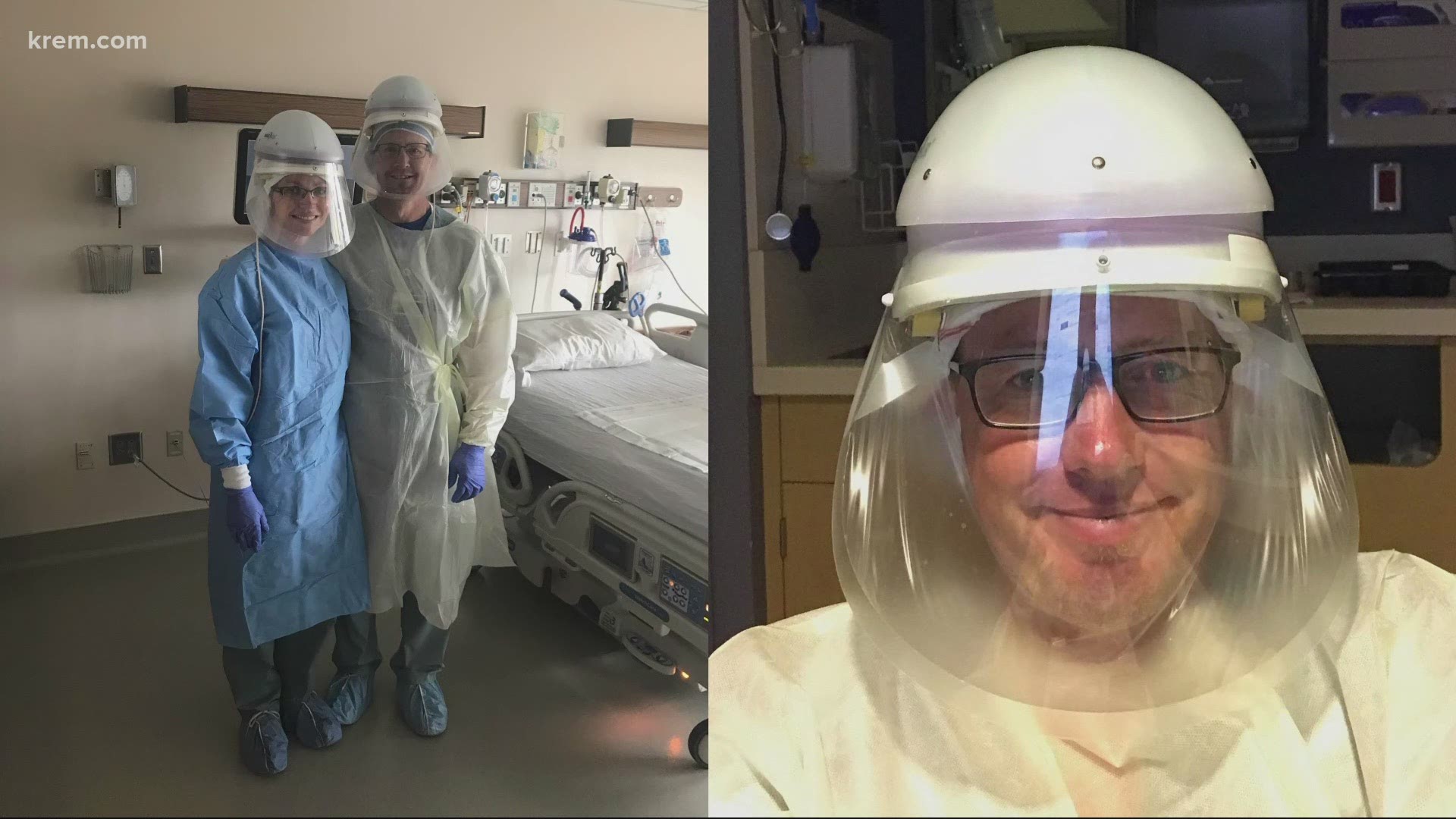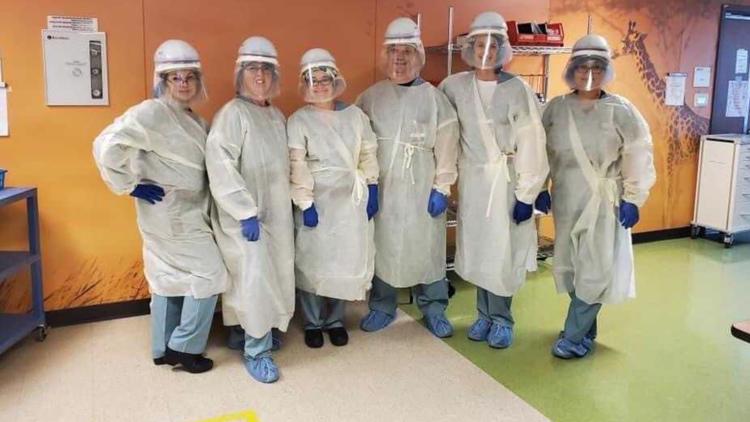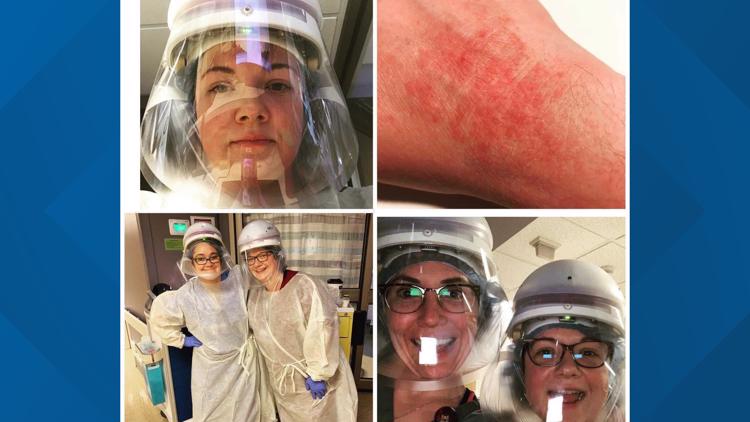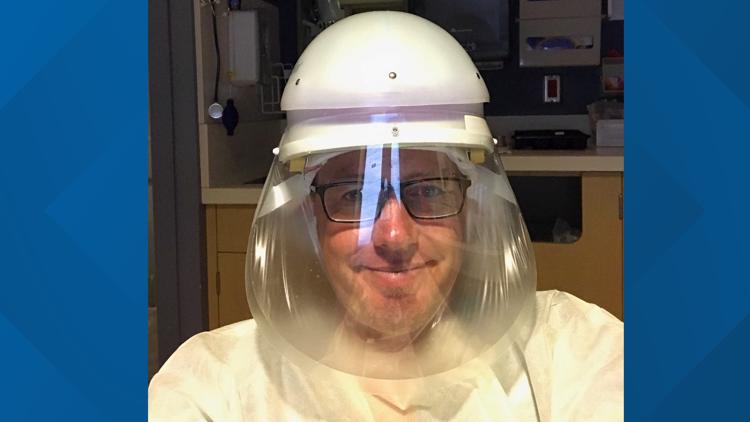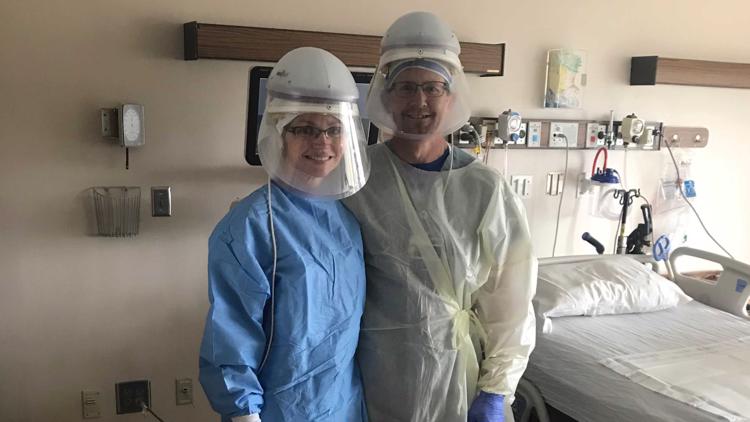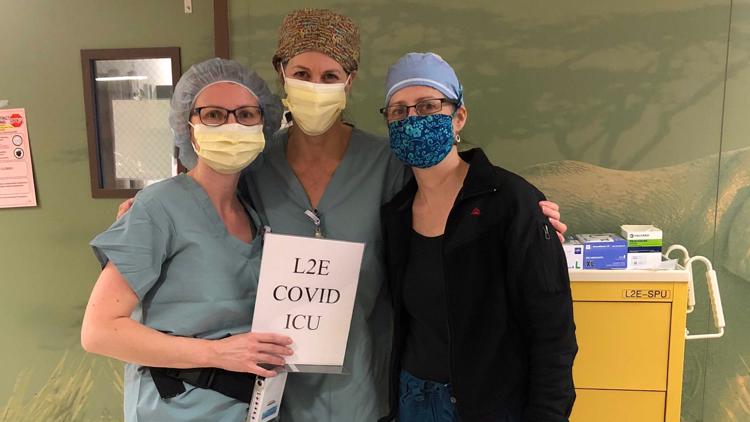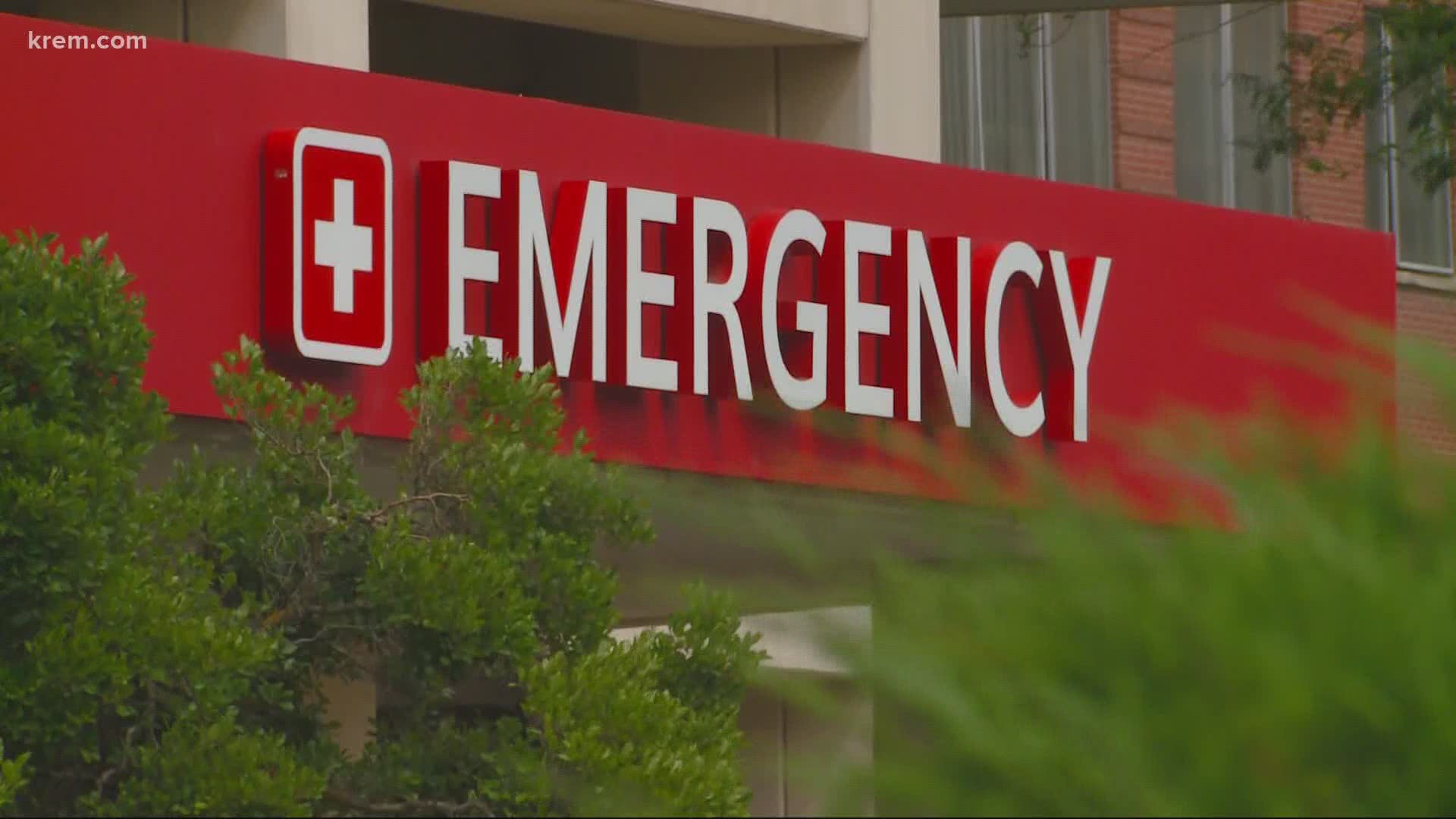SPOKANE, Wash. — Eight months into the coronavirus pandemic, Spokane nurse Clint Wallace made national news when he spoke on behalf of many health care professionals during a news conference on Sunday where Gov. Jay Inslee announced new restrictions in Washington state.
"I was even quoted in the Washington Post yesterday," Wallace said during an interview with KREM on Tuesday. "As my 15 minutes of fame...my quote was, 'We're exhausted,' which I think is very fitting. That's what it's going to say on my tombstone: 'Clint was tired.'”
Wallace works as a nurse in the Intensive Care Unit at Providence Sacred Heart Medical Center in Spokane. There has been a shortage of nurses throughout his 20-year career and the pandemic has led to added stress, he said.
“Spokane…isn't affected by the nursing shortage quite as much as the rest of the country because we have several nursing schools here in town, but we're always short-staffed, and then you add a different population, the COVID population. It has just been taxing on everybody," he said.
Tap to watch the full interview with Clint Wallace and watch the story on KREM 2 News at 5 p.m. on Tuesday.
Many staff members at Sacred Heart have racked up overtime during the pandemic, Wallace said. He had just finished working his second 16-hour shift on Tuesday morning and treated two coronavirus-positive patients in the ICU.
“One of them will survive and one of them won’t. And it’s difficult to see, especially the one who won’t," Wallace said. "I’m talking to their family member on the phone and trying to FaceTime with the patient who’s unconscious in an induced coma but trying to, you know, show the family this is what’s going on.”
Nurses go to great lengths to care for COVID-19 patients. They require "constant monitoring" and the frequent changing of personal protective equipment, which is taxing, Wallace said.
Protective equipment includes two layers of gloves, a surgical caps, disposable gown and some type of mask, whether it's an air-purifying respirator or N-95 with a face shield, Wallace said.
“If I were to compare a patient with pneumonia versus a patient with a COVID pneumonia, I would say the patient with COVID pneumonia is probably, you know, 50 to 75% more work than the normal patient with pneumonia," he said.
PHOTOS: ICU nurses at Sacred Heart during COVID-19 pandemic
The effects of the pandemic follow Wallace when he exits the hospital doors, too. His son is a senior high school and an athlete whose last year of school has been "robbed from him," he said. Wallace's daughter is a sophomore in high school and his wife is a clinical instructor at Washington State University.
"All of us [hospital staff] have...had to deal with this, with our kids being at home and or our spouses not having to be able to work and other stresses that everybody in the world has gone through on top of it. So it's just been an emotional time, and a physically tiring time, for all the staff at the hospital," he said.
One of the most difficult parts of caring for coronavirus patients is the inability for loved ones to see their family member who is recovering or dying from the virus in the ICU, Wallace said.
"It's part of someone healing, or part of somebody's dying, is to have that family support and they don't have that. So to try and be that person, as a nurse, for the patient is emotionally difficult," he said.
Wallace is pleading with the community to help slow the spread of the virus as new restrictions on retail and social gatherings are in place, adding that it's been "very concerning" how many coronavirus patients Sacred Heart has seen in the last several weeks.
“I’ve seen a lot of death through my whole career but this particular virus really can wipe somebody’s life away pretty quickly," Wallace said.
He also spoke about caring for COVID-19 patients who were infected during an outbreak at the Spokane Veterans’ Home.
“They had no chance almost once they reached the ICU level of care. I don't think many of them survived," Wallace said. "The virus seems to really attack people who have already have some sort of immunocompromised system, whether it's just age or whether it's diabetes, asthma. Those people are very vulnerable and if their oxygen level gets to a certain demand – we rarely see them survive.”
Wallace also expressed concerns about cold weather bringing people indoors and the holiday season during the pandemic.
“We are tired. We are near burnout if not already burned out. It's been that difficult the last eight months," he said.
Despite the exhaustion of the pandemic, Wallace said Sacred Heart has supported its staff well overall and he still feels passionate about his job.
“I feel as a nurse that we are an important part of the community and I take pride in the people I work with. And I know I know it's difficult," he said. "I'm very lucky to have a job that needs me all the time and during these difficult times, so we keep going. We just hope it ends soon.”

